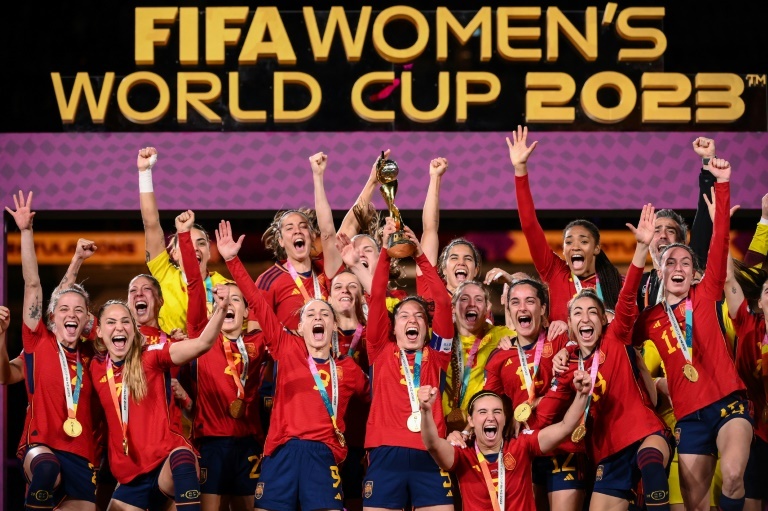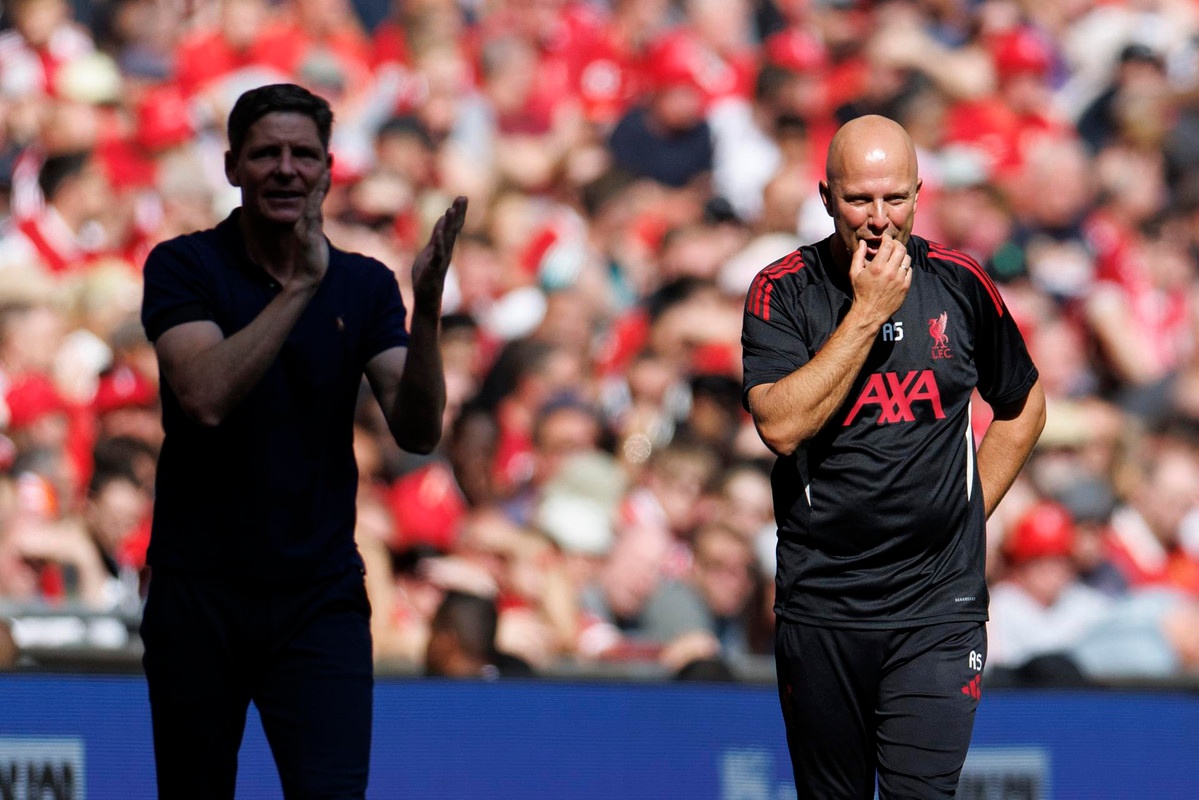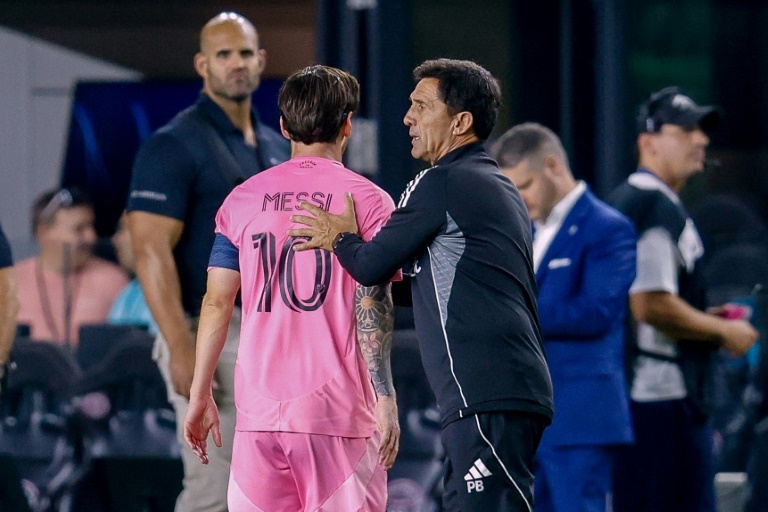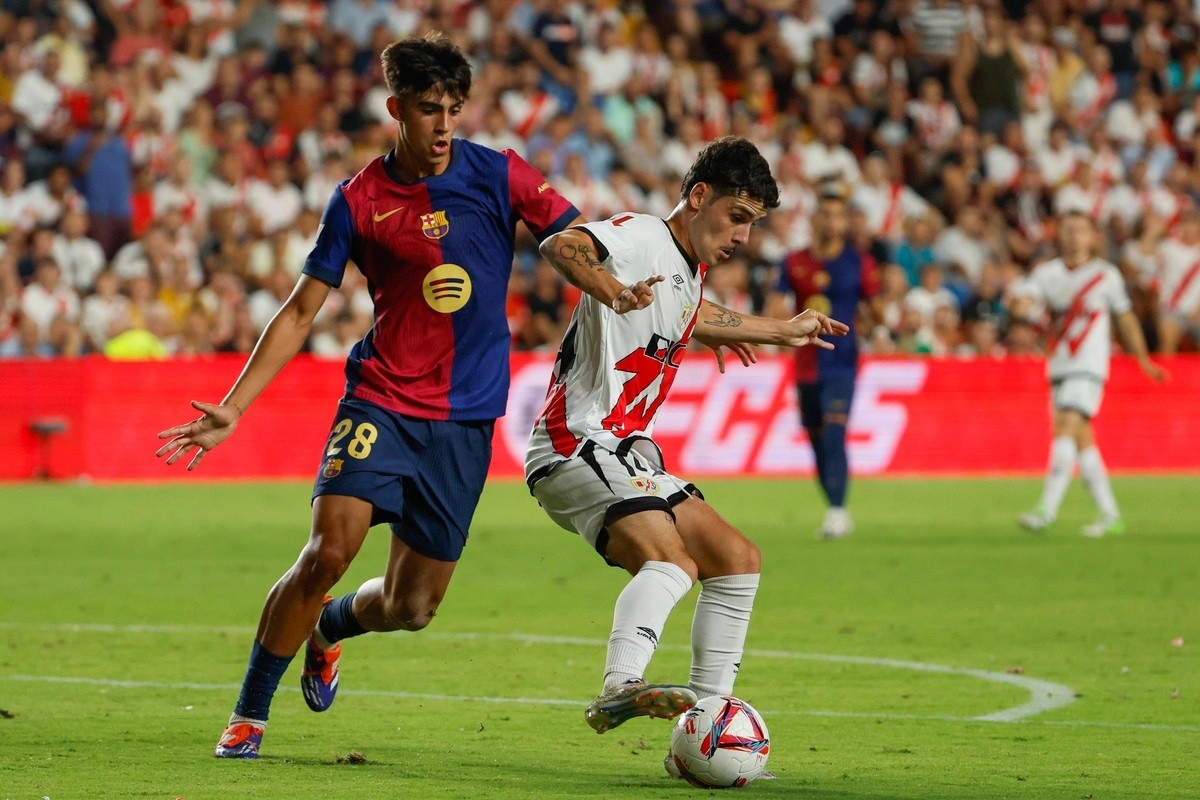FIFA meets to award 2027 Women's WC under Gaza cloud

Football's world governing body FIFA will decide the hosts for the 2027 Women's World Cup at its congress in Bangkok on Friday, where the war in Gaza will also rear its head.
1 year ago
After the 2023 World Cup in Australia and New Zealand lifted the women's game to new heights, FIFA must decide whether to take the 2027 edition to South America for the first time or return to Europe. FIFA's 74th Congress - held for the first time in Premier League-mad Thailand - will also hear a call from the Palestinian Football Association to sanction Israel for "violations of international laws", though FIFA says it will not vote on the matter.
Delegates will vote on Women's World Cup bids from Brazil and a joint offer from Belgium, the Netherlands and Germany. Brazil, home of women's football greats such as Formiga and Marta, appear to be the narrow favourites after FIFA's evaluation task force scored their bid slightly higher.
The evaluation report notes the "tremendous impact on women's football in the region" that South America hosting the Women's World Cup would have. Brazil's bid includes 10 stadiums used for the men's World Cup in 2014, with Rio de Janeiro's famous Maracana lined up for the opening match and the final.
But work needs to be done, in particular to the Amazonia stadium in Manaus which has stood almost unused for a decade. The Brazilian Football Confederation (CBF) has been in turmoil with president Ednaldo Rodrigues ousted by a court ruling in December, only to be reinstated a week later by another judge.
Suspicions of government interference raised the threat of penalties from FIFA or football's regional ruling body in South America, Conmebol.
By contrast, Belgium, Germany and the Netherlands are offering a "compact tournament footprint" that uses rail links to reduce the environmental impact. But the FIFA inspectors warned of a "more complex legal framework" with the European bid which could mean higher costs.
The bid aims to be the most commercially successful Women's World Cup so far, though the evaluation report noted the smaller stadium sizes would make it harder to break the attendance records set in Australia and New Zealand last year. Amsterdam's Johan Cruyff Arena and the cauldron of the Westfalenstadion, home to Borussia Dortmund">Borussia Dortmund, have been earmarked for key matches.
But since Europe has hosted the tournament three times before - including Germany in 2011 and France in 2019 - delegates may favour breaking fresh ground. The congress will make its decision on Friday by open vote for the first time, as FIFA tries to pursue transparency after years of accusations of shady backroom dealing.
Delegates had their choice simplified last month when the United States and Mexico withdrew their joint bid, deciding instead to focus on trying to win the right to stage the 2031 edition. FIFA will also make a fresh stand on racism at the congress.
President Gianni Infantino has called for a concerted fight against racism, after numerous instances of abuse hurled at Real Madrid and Brazil forward Vinicius Junior in Spain, among others. The congress also comes with FIFA at loggerheads with domestic leagues and player unions over the scheduling of the 2025 Club World Cup.
Last week the governing body denied "imposing" its timetable, after leagues and unions threatened legal action unless the 32-team Club World Cup was moved from its planned dates of June 13th to July 15th next year. In a letter to Infantino, the World Leagues Association and FIFPRO, the international players' union, warned the game's worldwide schedule had gone "beyond saturation".
Delegates will vote on Women's World Cup bids from Brazil and a joint offer from Belgium, the Netherlands and Germany. Brazil, home of women's football greats such as Formiga and Marta, appear to be the narrow favourites after FIFA's evaluation task force scored their bid slightly higher.
The evaluation report notes the "tremendous impact on women's football in the region" that South America hosting the Women's World Cup would have. Brazil's bid includes 10 stadiums used for the men's World Cup in 2014, with Rio de Janeiro's famous Maracana lined up for the opening match and the final.
But work needs to be done, in particular to the Amazonia stadium in Manaus which has stood almost unused for a decade. The Brazilian Football Confederation (CBF) has been in turmoil with president Ednaldo Rodrigues ousted by a court ruling in December, only to be reinstated a week later by another judge.
Suspicions of government interference raised the threat of penalties from FIFA or football's regional ruling body in South America, Conmebol.
By contrast, Belgium, Germany and the Netherlands are offering a "compact tournament footprint" that uses rail links to reduce the environmental impact. But the FIFA inspectors warned of a "more complex legal framework" with the European bid which could mean higher costs.
The bid aims to be the most commercially successful Women's World Cup so far, though the evaluation report noted the smaller stadium sizes would make it harder to break the attendance records set in Australia and New Zealand last year. Amsterdam's Johan Cruyff Arena and the cauldron of the Westfalenstadion, home to Borussia Dortmund">Borussia Dortmund, have been earmarked for key matches.
But since Europe has hosted the tournament three times before - including Germany in 2011 and France in 2019 - delegates may favour breaking fresh ground. The congress will make its decision on Friday by open vote for the first time, as FIFA tries to pursue transparency after years of accusations of shady backroom dealing.
Delegates had their choice simplified last month when the United States and Mexico withdrew their joint bid, deciding instead to focus on trying to win the right to stage the 2031 edition. FIFA will also make a fresh stand on racism at the congress.
President Gianni Infantino has called for a concerted fight against racism, after numerous instances of abuse hurled at Real Madrid and Brazil forward Vinicius Junior in Spain, among others. The congress also comes with FIFA at loggerheads with domestic leagues and player unions over the scheduling of the 2025 Club World Cup.
Last week the governing body denied "imposing" its timetable, after leagues and unions threatened legal action unless the 32-team Club World Cup was moved from its planned dates of June 13th to July 15th next year. In a letter to Infantino, the World Leagues Association and FIFPRO, the international players' union, warned the game's worldwide schedule had gone "beyond saturation".







Comments